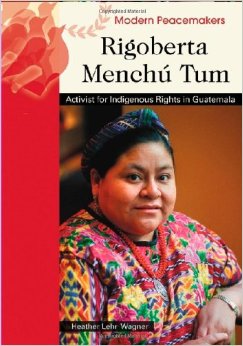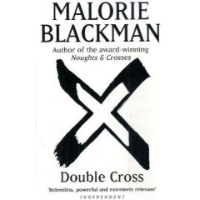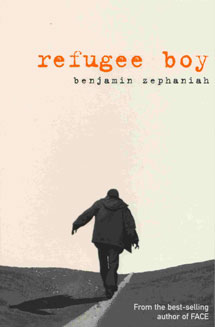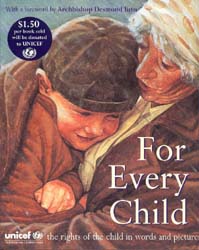 FOR EVERY CHILD - A UNESCO Publication
FOR EVERY CHILD - A UNESCO Publication
(The rights of the child in words and pictures)
Foreword by Archbishop Tutu
Text by Caroline Castle
"Every household should have one" says the Observer. Too right. This appealingly illustrated book is addressed to children, but all adults should read it too. It depicts a happy childhood in many entrancing ways, in pictures with simple captions. We see children of every race and creed performing with little toy instruments, playing with friends, being cared for by elder children and adults, building sand-castles. They are pictured listening to stories read to them by loving adults, having magical moments in the countryside.
Every one of their entitlements is explained and illustrated: appropriate and enjoyable education, freedom from harm, whether inflicted intentionally or through neglect. All their rights are explained in the simplest possible way.
As we well know, millions of children throughout the world, including in our own prosperous countries, do not enjoy these rights. The ravages of war and poverty are added to adult neglect and sometimes violence to make their lives a misery This saddening thought arises inescapably from a reading of this excellent UNESCO publication, with its inspiring foreword by the archbishop, well known for his part in the anti-Apartheid struggle. He saw, at first hand, plenty of child suffering in his own country.
A heart-warming call to all of us to work for the universal implementation of these rights.

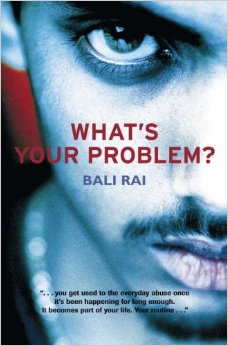 What's Your Problem? by Bali Rai
What's Your Problem? by Bali Rai